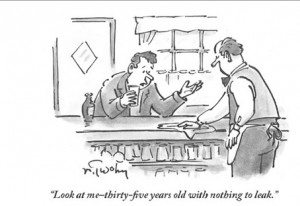Journalists and scholars are studyng the possibility of conflict in the Far East. Some think China and Japan will shoot at each other in the next five years.
Financial Times reporting: The new era of military competition in the Pacific may become the defining geopolitical contest of the 21st century. China’s turn to the seas is rooted in history and geography in a manner that transcends its current political system. It was from the sea that China was harassed during its “century of humiliation” at the hands of the west. China was one of the most prominent victims of 19th-century gunboat diplomacy, when Britain, France and other colonial powers used their naval supremacy to exercise control over Shanghai and a dozen other ports around the country. The instinct to control the surrounding seas is partly rooted in the widespread desire never to leave China so vulnerable again. “Ignoring the oceans is a historical error we committed,” says Yang Yong, a Chinese historian. “And now even in the future we will pay a price for this error.”
Anxieties about history and geography have meshed with broader concerns about economic security. One of the key turning points in China’s push to the high seas took place when it started to import oil for the first time, in 1993. By 2010, China had become the second-biggest consumer of oil, half of which is now imported. New great powers often fret that rivals could damage their economy with a blockade. For every 10 barrels of oil that China imports, more than eight travel by ship through the Strait of Malacca, the narrow sea channel between Indonesia, Malaysia and Singapore, which is patrolled by US ships. Fifteenth-century Venetians used to warn, “Whoever is the Lord of Malacca has his hand on the throat of Venice.” Hu Jintao echoed these sentiments when he warned in a 2003 speech that “certain major powers” are bent on controlling this crucial sea lane. Until now, China’s maritime security has been guaranteed largely by the US Navy. But, like aspiring great powers before it, China has been forced to confront a central geopolitical dilemma: can it rely on a rival to protect the country’s economic lifeline?
The US has not lost an aircraft carrier since the Japanese sank the Hornet in 1942. Both practically and symbolically, the aircraft carrier has been central to American power projection over the six decades during which it has dominated the Pacific. But it is those same vessels that are now potentially under threat from China’s vast new array of missiles. The loss of a carrier would be a massive psychological blow to American prestige and credibility, a naval 9/11. The mere prospect that carriers might be vulnerable could be enough to restrict their use. Even if the US Navy commanders thought their carriers would probably survive in a conflict, they might be reluctant to take the risk. As a result, the US needs a Plan B.
In the bowels of the Pentagon, that new plan has been taking shape. It is not actually described as a plan – instead, Pentagon officials call it a new “concept” for fighting wars. But it does have a name, AirSea Battle, which echoes the military doctrine from the later stages of the cold war called AirLand Battle, when the massive build-up in Soviet troops appeared to give the USSR the capacity to over-run western Europe. Many of the details about AirSea Battle remain vague. But the few indications that have been made public suggest an approach that, if pushed too far, could be a manifesto for a new cold war.
Then there are the allies. Asian governments are keen on a US military that can push back against Chinese aggression and are eager to enlist US help in this regard. But some allies might balk at the prospect of a plan to attack deep into mainland China, especially if it involved launching bombing raids from their territory. Ben Schreer, an Australian military strategist, says AirSea Battle is suited to “a future Asian cold war scenario”. Rather than providing assurance, Washington’s new battle plan could easily rattle some of its friends and allies.
Is AirSea Battle politically viable? Given the risks, especially the chance of nuclear escalation, it is not at all clear that a US president would endorse a war plan that involved such a rolling bombing campaign. Successful deterrence relies on being able to demonstrate a military threat that is credible and realistic. Pentagon planners hope the Chinese military will be cowed by the mere thought of an American military strategy based on AirSea Battle. But, equally, the Chinese might come to see it as a one great big bluff.
At the very least, AirSea Battle concentrates the mind. It is prompting a much broader debate in the US about how to respond to the Chinese challenge. With its superiority now under threat, Washington faces a choice: it can try to retain its primacy at all costs or it can shift to a more defensive approach that is geared towards preventing another power from ever controlling the region. Deterrence is not always the same as dominance.
Such bleak outcomes are not inevitable, of course – powerful economic connections narrow the space for reckless behaviour. Yet a previous era of globalisation failed to prevent the UK and Germany from going to war. Shinzo Abe, the Japanese prime minister, is not alone in comparing the current situation in Asia to Europe in 1914. Asian militaries lack the meticulous war plans that helped push Europe into conflict then but the region offered a familiar mixture of nationalism and the potential for miscalculations that can spin out of control. The western Pacific may now be the cockpit of the world economy but it is also turning into one of its most dangerous flashpoints.











